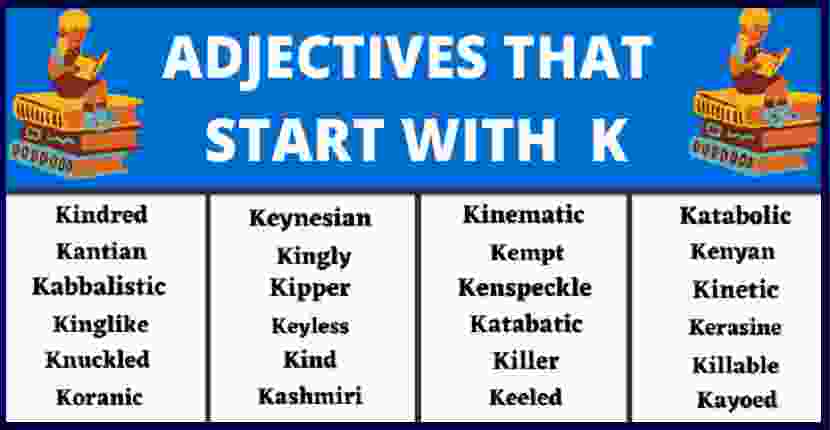Clauses Meaning and Examples:-आर्टिकल में आज SSCGK आपसे Clauses Meaning and Examples के बारे में विस्तार से चर्चा करेंगे।
इससे पहले आर्टिकल में आप Adjectives Meaning and Examples के बारे में विचार से पढ़ चुके हैं।
Clauses Meaning and Examples:-
Clause ऐसे शब्दों के समूह को कहते हैं जो किसी वाक्य का भाग होता है और उसका अपना Subject तथा Predicate होता है।
जैसे-
I know where Sahil lives.
Ram knows where Shyam lives.
उपरोक्त वाक्यों में 2 क्लॉज हैं-
No.1.-
I Know-इस क्लॉज में I Subject है और इसका know इसका Predicate है।
है।
Ram knows-इस क्लॉज में Ram Subject है और knows इसका Predicte है।
No.2.
Sahil lives. –इस क्लॉज में Sahil Subject है और lives उसका Predicate है।
Shyam lives.इस क्लॉज में Shyam subject है और lives उसका Predicate है।
Clauses Meaning and Examples for HSSC:–
Kinds of clauses-
There are two types of clauses in English given as under-
No.1.- Principal Clauses
No.2.- Subordinate clauses
Clauses Meaning and Examples for SSC:-
No.1.- Principal Clauses-A principal clause is one that stands by itself and makes the main statement.
वह क्लॉज जो अपने आप में पूरी हो तथा जिसका अर्थ भी स्पष्ट हो उसे Principal Clause कहते हैं।
No.2.-Subordinate Clauses- A subordinate clause is one that cannot stand alone but depends upon the main clause for its meaning.
वह क्लॉज जो अकेली नहीं लिखी लिखी जा सकती तथा जो पूरे अर्थ के लिए मेन क्लाज पर निर्भर करती है उसे हम Subordinate क्लॉज कहते हैं।
Example-
I know that he is a good boy.
इस वाक्य में I know तो Principal Clause है तथा that he is a good boy- Subordinate clause है।
क्लाजिज मीनिंग एंड एग्जामप्ल्स:-
Types of subordinate clauses-
There are three types of subordinate clauses-
- The noun clause
- The adjective clause
- The adverb clause
क्लाजिज मीनिंग एंड एग्जामप्ल्स फॉर सीपीओ :-
- The noun clause-वह क्लॉज जो संज्ञा का कार्य करती है उसे क्लॉज कहते हैं
जैसे-
Listen to what I say.
अतः इसकी निम्नलिखित संभावनाएं हैं-
(1).-Verb के Subject के रूप में-
जैसे-
(i) That he is a thief is known to all
(ii) How long he stayed there is not known.
(iii) Why he behaves badly is a mystery.
(2).-Transitive verb के object के रूप में-
जैसे-
(i). Ask him if he can do this for me.
(ii). He always does whatever is right.
(iii). Roshni knows very well that Ram is very honest boy.
(3).-Preposition के object के रूप में-
जैसे-
(i). Listen to what your teacher says.
(ii). I agreed to what he said.
(4).-Participle के object के रूप में-
जैसे-
(i).Thinking that the student was honest, the principal pardoned him.
(ii). Hoping that he would meet his uncle, he went to Delhi.
Clauses Meaning and Examples:-
(5).-Infinitive के object के रूप में-
जैसे-
(i). I want to know when you will come back.
(ii). Let him speak what he likes.
(iii). She was grieved to hear that’s the king had died.
(6).Incomplete verb के complement के रूप में-
जैसे-
(i). Life is what we make it.
(ii). He is what he should be.
(iii). His father has made me what I am.
(7).-किसी Noun या Pronounके case in apposition के रूप में-
जैसे-
(i). It is a pity that you have failed.
(ii). It is clear that she will not come back.
(iii). It is certain that no body will help you.
(iv). It is feared that he will not come.
- The adjective clause/relative clause-
Adjective clause एक विशेषण का काम करती है। यह संज्ञा सर्वनाम की विशेषता बताती है।
Adjective clause सदा Relative Pronoun या Relative Adverb से आरंभ होती है,
जिसका antecedent इस क्लॉज से पहले ही रखा जाता है।
(1). जब Relative pronoun का प्रयोग restrictive sense में किया जाता है।
जैसे-
(i). Those whom gods love die young.
(ii). He who loves the poor is loved by God.
(iii).The book is such as I have never read before.
(2). जब Relative adverbs का प्रयोग restrictive sense ने किया जाता है।
जैसे-
(i). I do not know no the way how he acted before his officer.
(ii). This is the forest where lions live.
(iii). Tell me the time when he will return.
Clauses Meaning and Examples:-
कभी-कभी adjective को आरंभ करने वाला objective में प्रयुक्त relative pronoun or relative adverb भी लुप्त ही रहता है।
जैसे-
(i).It is the pen my father gave me.
(ii).I do not like the answer you gave him.
कभी-कभी Adjective को clause आरंभ करने वाले relative pronoun के रूप में than भी लगा दिया जाता है।
Examples-
(i).I like Buddha better man than whom India has not produced.
कभी-कभी But से adjective clause आरंभ होती है।
जैसे-
(ii). There was not a man but ( who did not) wept at Bhagat Singh’s death.
- The adverb clause –
An adverb clause is a clause which does not work of an adverb. Adverb clause
एक Adverb की विशेषता बताती है।
यह निम्नलिखित भाव प्रकट करती है-
(1). Time(समय)-ये closes when, as soon as, a while, before, until, after, since, whenever, so long as, the moment, until, just as are conjunctions आदि से आरंभ होती हैं। जैसे-
(i). Think before you act.
(ii). As we reached home, the sun set.
(iii). Since she came here, she has not been well.
Clauses Meaning and Examples:-
(2). Place(स्थान)- ये clauses where, whence, wheneverआदि से आरंभ होती हैं।
जैसे-
(i). I went where he went.
(ii). The beggar goes wherever he pleases.
(iii). He went wherever he liked.
(3). Cause or reason(कारण)-ये clauses since, as, because, tbecause) who( because he), which (because it) आदि से आरंभ होती हैं।
जैसे-
(i). As it was hot ,he sat down under a tree.
(ii). I am glad that you have passed.
(4). Manner(विधि/ ढ़ंग)-ये clauses as, so far as, according, as if, as though, आदि conjunctions से आरंभ होती हैं।
जैसे-
(i). She shouted as if she were mad.
(ii). Ram acted as he was told.
Clauses Meaning and Examples:-
(5). Condition(शर्त)-ये clauses if,whether, in case, unless, as if, provided or provided that, so long as आदि conjunctions से आरंभ होती हैं।
जैसे-
(i). You will die, if you take poison.
(ii). If you like it, you may get it.
(6). Purpose(उद्देश्य)-ये clauses answering the question why, that, lest, so that, in order thatआदि conjunctions से आरंभ होती हैं।
जैसे-
(i). Work hard lest you should fail.
(ii). He died that his country might live.
(7). Comparison(तुलना)-ये clauses ( answering the question) how much, as much as, no less than, as आदि conjunctions से आरंभ होती हैं।
जैसे-
(i). She loves me no less than she likes Sahil.
(ii). He is stronger than you are.
Clauses Meaning and Examples:-
(8). Conclusion(परिणाम)- ये clauses ( making an admission) the although, as, even, if, all the same, however, whatever, not withstanding, आदि conjunctions से आरंभ होती हैं।
जैसे-
(i). Though he is poor, he is an honest.
(ii). Even if he opposes us, we must try.
(9). Result or effect (प्रभाव)- ये क्लॉज so that, such that आदि conjunctions से आरंभ होती हैं।
जैसे-
(i). He was so weak that he could not walk.
(ii). She is so weak that she cannot pass.
(10). Proportion (परस्पर संबंध)- ये clauses ‘the’ से आरंभ होती हैं और इनके पीछे the सहित Principal clause लगी होती है।
जैसे-
(i). The higher you go the cools it is.
(ii). The nearer the temple the farther from God.
(11). Concession or contrast (विरोध या प्रतिकूलता)-यह clauses though, although, even, however, which, ever, whatever आदि से आरंभ होती हैं।
जैसे-
(i). Even I miss the train, I will reach Delhi.
(ii). I did not get a scholarship although I work hard.
Clauses Meaning and Examples:-
Co-Ordinate Classes-
कुछ वाक्यों Subordinate clause नहीं होती। ऐसे वाक्य दो या दो से अधिक co-ordinate clauses के मेल से बने होते हैं।
जैसे-
(i). He is rich, still he is miserly.
(ii). Work hard, or you will fail
(iii). He entered the room and sat by his father.
(iv). He worked very hard for the examination, but he failed
(v). He is poor, yet he is an honest.



